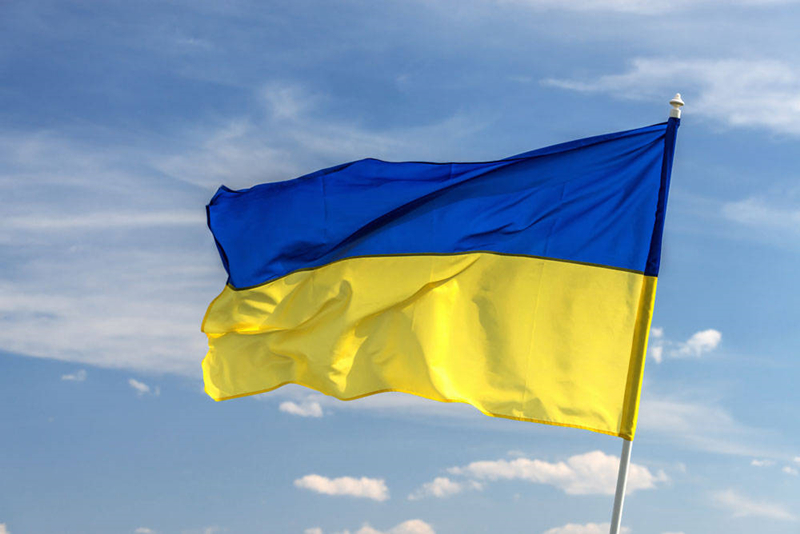
The State Nuclear Regulatory Inspectorate of Ukraine (SNRIU) told IAEA that both its communications with the facility – the Kiev branch of the State Specialised Enterprise Radon – and the radiation monitoring system at the site had been restored during the morning. SNRIU said it expects to soon receive the results of on-site radioactive monitoring. Staff at the facility were forced to take shelter during the night but could later assess the situation.
The incident came a day after SNRIU said an electrical transformer at a similar disposal facility near the north-eastern city of Kharkiv had been damaged, also without any reports of a radioactive release. Such facilities typically hold disused radioactive sources and other low-level waste from hospitals and industry.
“These two incidents highlight the very real risk that facilities with radioactive material will suffer damage during the conflict, with potentially severe consequences for human health and the environment,” Grossi said.
“Once again, I urgently and strongly appeal to all parties to refrain from any military or other action that could threaten the safety and security of these facilities,” he added. While these disposal sites do not contain high-level radioactive waste, the stored and disposed radioactive waste can still cause a serious radiological impact event, underlining the necessity to protect them, he noted. He praised the SNRIU and staff at the affected facilities for their vigilance and courage in ensuring continued safety and security.
IAEA continues to monitor developments, including at Chernobyl
The IAEA said it continues to closely monitor developments in Ukraine, with a special focus on the safety and security of its nuclear power reactors. On 26 February, Grossi said Ukraine had informed IAEA that its nuclear power plants remained stable and in normal operation. SNRIU said its staff maintained regular contacts with the plants. Ukraine has four nuclear power sites with a total of 15 reactors, providing roughly half of its electricity.
Earlier, on 24 February, Ukraine told the IAEA that “unidentified armed forces”. Later identified as Russian, had taken control of the facilities of the State Specialised Enterprise Chernobyl Nuclear Power Plant, located within the Exclusion Zone. Grossi said it was of vital importance that the safe and secure operations of the zone’s nuclear facilities should not be affected or disrupted in any way. Regarding reports earlier of higher radiation measurements at the Chernobyl site, SNRIU said they may have been caused by heavy military vehicles stirring up soil still contaminated from the 1986 accident.
The IAEA assessed that the readings reported by the regulator – of up to 9.46 microSieverts per hour – were low and within the operational range measured in the Exclusion Zone since it was established, and did not pose any danger to the public.
Reactors continue to operate safely
Meanwhile, Ukrainian nuclear utility Energoatom confirmed today, 28 February, that the nuclear power plants at Zaporozhye, Rovno, Khmelnitsky and South-Ukraine were operating safety.
It added that nine of the 15 reactors are operating. Rovno 1, Khmelnitsky 2 and Zaporozhye 1 are undergoing scheduled repairs, while Zaporozhe 5&6 have been placed in cold standby. South Ukraine 3 was “in reserve with further withdrawal to medium scheduled repairs. Energoatom’s total operating capacity was 7159MWe as of 9:00am on 28 February.
“There are no violations of the conditions of safe operation. Radiation, fire and environmental conditions at all NPPs and adjacent territories have not changed and are within current standards,” Energoatom said.
International nuclear industry response
The conflict in Ukraine is already affecting Russia’s nuclear industry. Finland’s Fennovoima said on 24 February that the future of the Hanhikivi nuclear power plant was at risk.
“The international situation has deteriorated in recent hours and is deteriorating all the time, and a major armed conflict in Europe is now a reality. Russia's invasion of Ukraine and the consequent retaliation by the EU and the West pose a major risk to the Hanhikivi 1 project.” It added: "Fennovoima acknowledges that the ongoing conflict situation may have impacts on the Hanhikivi 1 project. In case there are impacts, we aim to mitigate those as much as possible."
In an update on 28 February Fennovima said that the current decided sanctions are expected to impact the Hanhikivi 1 project. However, as details are not yet available, detailed impacts cannot be assessed for the time being.
"Fennovoima’s duties and legal obligations remain unchanged until there are changes to this framework through sanctions or binding decisions by the relevant authorities," it said. "For the time being, we continue executing our project and carefully follow the developments of the situation."
In January, licensing work for the Hanhikivi 1 nuclear power plant was said to have reached the 'homestretch' with Fennovoima expecting to submit its final licensing materials to Finland's Radiation and Nuclear Safety Authority by the end of February, with the goal of gaining a construction licence this year.
Elsewhere, Sweden’s power company Vattenfall said on 24 February that it was "deeply concerned by the serious security situation in Europe and Russia’s invasion of Ukraine” It added: “We have therefore decided that no planned deliveries from Russia to our nuclear power plants will take place until further notice. We will also not place any new orders from Russia to our nuclear power plants until further notice.”
Vattenfall added: “Our procurement strategy is based on having multiple suppliers from different countries, in order to safeguard our independence and security of supply to our nuclear power plants. Based on this we also have plans to manage possible irregularities in the supply. The operation of our nuclear power plants will therefore not be affected by these decisions.”